
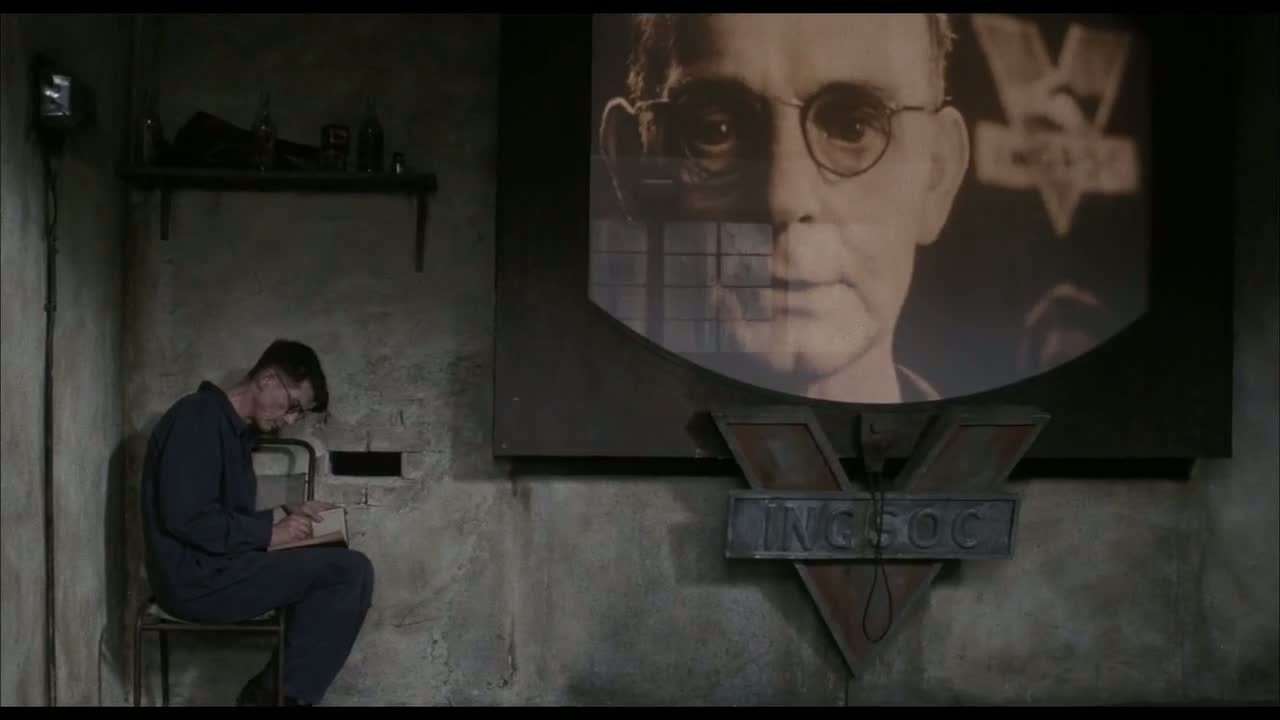
I first read George Orwell’s 1984 as a sophomore in high school.
The pre-internet wastelands of 1993 were a pivotal time in my life. Back then, non-conformity was heavily frowned upon (I imagine it still is to a certain degree, but since I stopped giving a shit decades ago, I can’t comment on its present-day power), and sticking out in any way was literally dangerous. Violence was not uncommon for me and my friends, as cops and jocks regularly harassed anyone not fitting into their rigid standards of normalcy. Our heads remained on a constant swivel in those days, always on the lookout for trouble and meeting it with fists clenched whenever it crossed our path. It was under these circumstances that my life began to radically shift.
As I sat in study hall reading dystopian words of self-determination and repulsive mass conformity, the world began to open up to me in ways I never thought possible. Right there on the page I recognized the same witless need to conform that I saw every day at school, every time I was stopped by a cop, and every time a teacher looked at me with enough judgment to kill an elephant. It was easy to identify with Winston Smith and his desire to break free of his monotonous, pointless life. His yearning to expose the hypocrisy and insanity of those in charge was enviable and relatable.
With the help of Orwell – along with Kurt Vonnegut, John Steinbeck, Henry Rollins, Jello Biafra, Che Guevara, Huey Newton, Bobby Seale, Stokely Carmichael, and especially Fred Hampton – I was becoming free in real time, and it felt wonderful. Never again would I mindlessly fall in line, no matter how hard the pigs tried to make me.
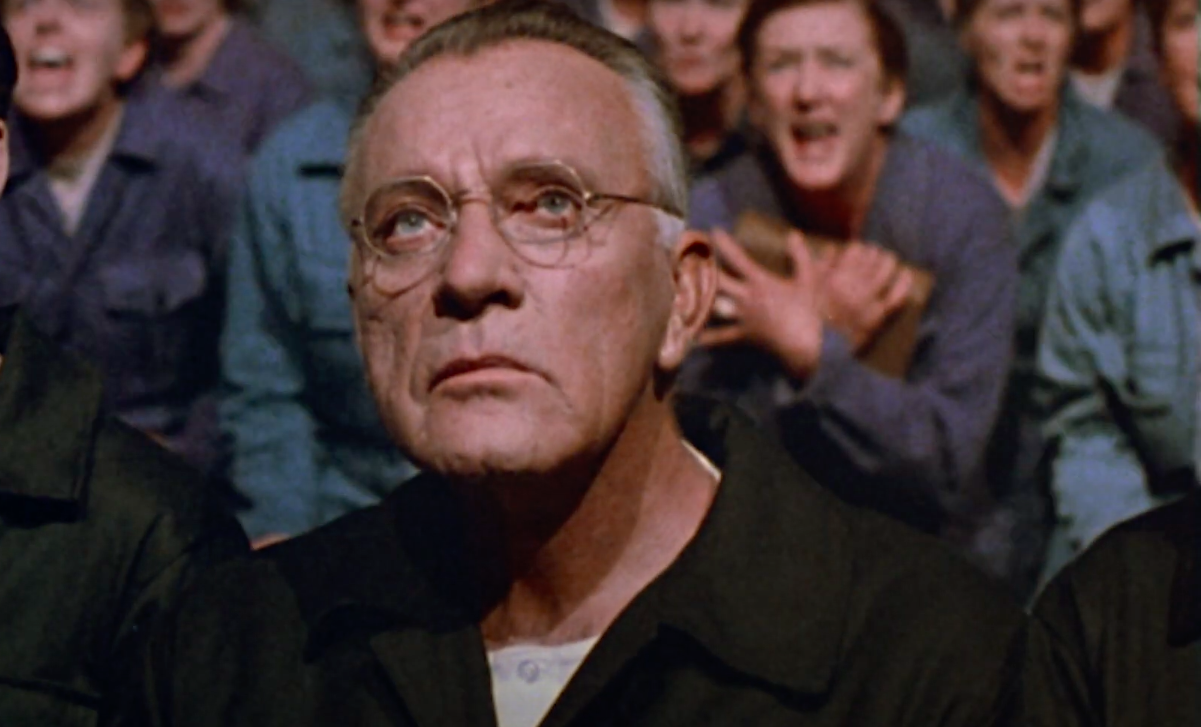
I say all this to emphasize my early reliance on the written word. Movies were something I always enjoyed analyzing and critiquing for fun, but it was my love of books – especially ones that took a decidedly anti-establishment political stance – that would eventually form the basis for my personal belief system, and therefore be a dominant aspect of my film criticism.
When it comes to movies, I love nothing more than a well-made, subversive, and cleverly-enacted middle finger to the man, which is why it might come as a surprise that I didn’t see the film version of one of the most influential, life-changing books I’ve ever read until very recently. Put simply, I was afraid to watch it in case I hated it. The book was too important to me to dislike any movie version so I avoided it for years. Recently, however, the Criterion Collection re-released director Michael Radford’s adaptation of 1984, and I fell in love with Orwell’s terrifying dystopia all over again.
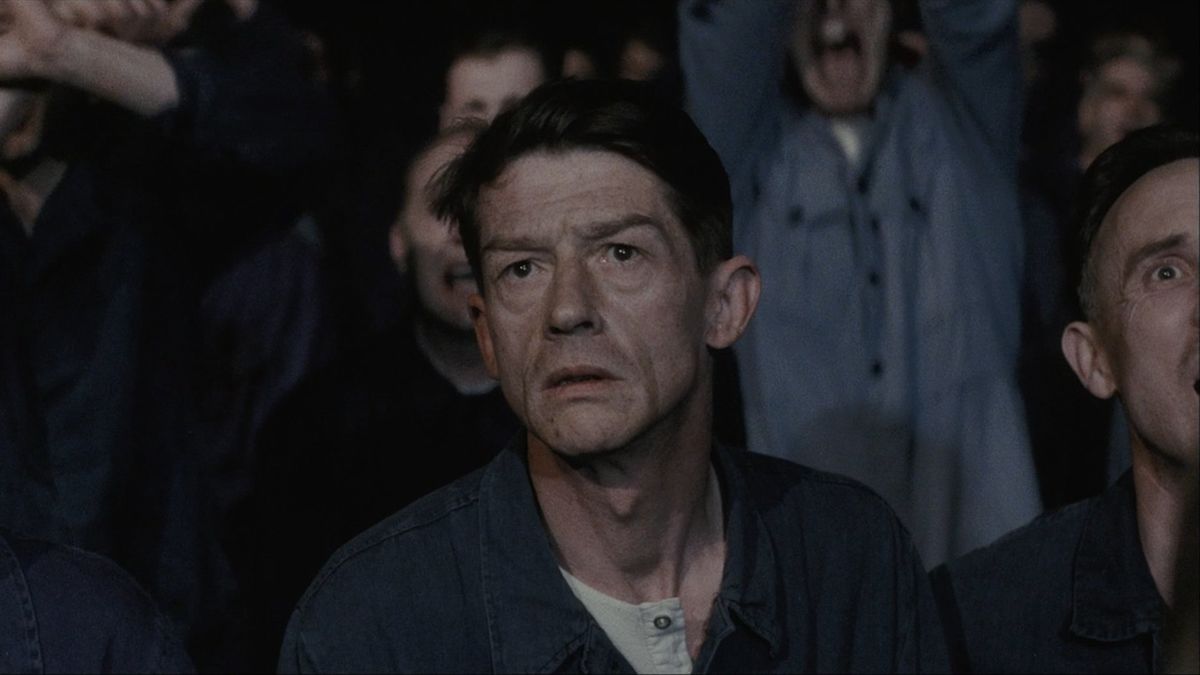
The bleak reality of Winston Smith (John Hurt, perfectly embodying the eager subversive just as I’d always pictured him in the book) is not something easily captured on film. With the exception of Alfonso Cuarón’s Children of Men (2006), dystopian cinema inevitably fails at selling me the moral and repressive depths to which its societies have sunk.
Often, the grim world in which these films inhabit serves only as window-dressing or ambiance. They don’t cut deep enough into their settings to make me identify with the pain of its people. For it to be truly successful, I need to feel trapped in its grip. I need to feel the cold, the damp, and the fear faced by its protagonists. I need to feel hopeless.
Where others fail, 1984 whole-heartedly succeeds. It’s as bleak as they come.
As Smith takes part in a sickening daily ritual called the “two minutes hate,” his reluctance to fall in line quickly changes to a malleable compliance the moment he sees that a senior party member (Richard Burton) has noticed his lack of enthusiasm. His secret defiance to this insane custom (in which a large auditorium of people scream obscenities at the image of a reviled enemy of the state called Goldstein) is not diminished by this brief encounter with an authoritative figure, but it does startle him into submitting to the fervor.
What’s spectacular about this scene is that, although Smith eventually joins the crowd and begins his own tirade of vitriol, Hurt’s eyes never betray the tormented man’s true heart. Conformity is intellectually painful for Winston Smith, but, as we come to see in the film’s grueling climax, the psychological torment of non-conformity is far worse.
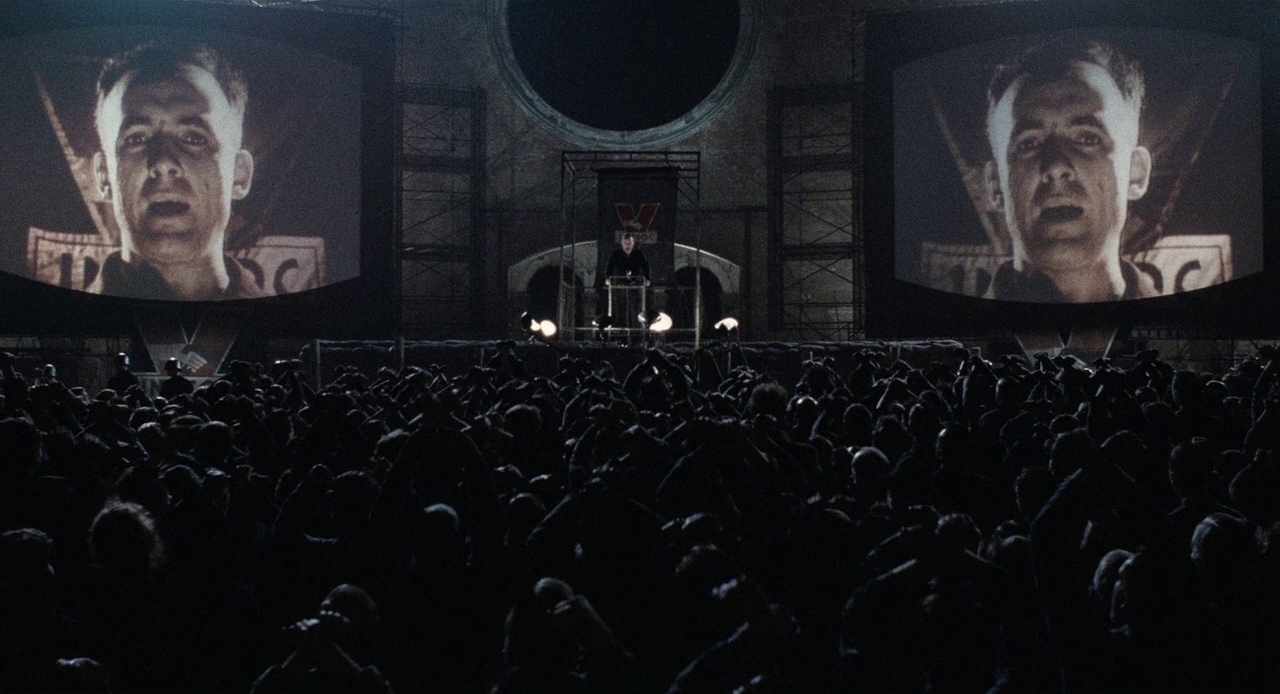
For many, the crux of 1984 lies in its eerily predictive caution against authoritarianism, the power of propaganda, and surveillance states, but for me, its heart lies in Smith’s extreme distaste for mass conformity and willing ignorance. Smith holds true contempt for those who blindly follow authority, yet maintains a grudging sort of pity for those who possess the logical capacity to recognize such a decayed display of collective groupthink, but lack the wherewithal to conceptualize (even if only to themselves) any meaningful resistance to it.
Smith eventually finds fleeting moments of respite in the arms of Julia (Suzanna Hamilton), a fellow covert dissident with questionable access to mundane items like coffee and jam. The fire of their unauthorized romance is consistently tempered by their squalid and gray surroundings, as even the green trees and fields of the countryside are muted by polluted skies. Romantically, it’s a nearly joyless affair, with both Smith and Julia using each other as stand-ins for true happiness, and echo chambers for their shared disgust of hypocrisy and righteousness.
However, despite the ever-present coldness between them, Hurt and Hamilton brilliantly embody a unique sense of disheveled rebellion each time they share the screen. Their defiance may be small, and likely meaningless, but in their companionship they find freedom, even if only for a moment.
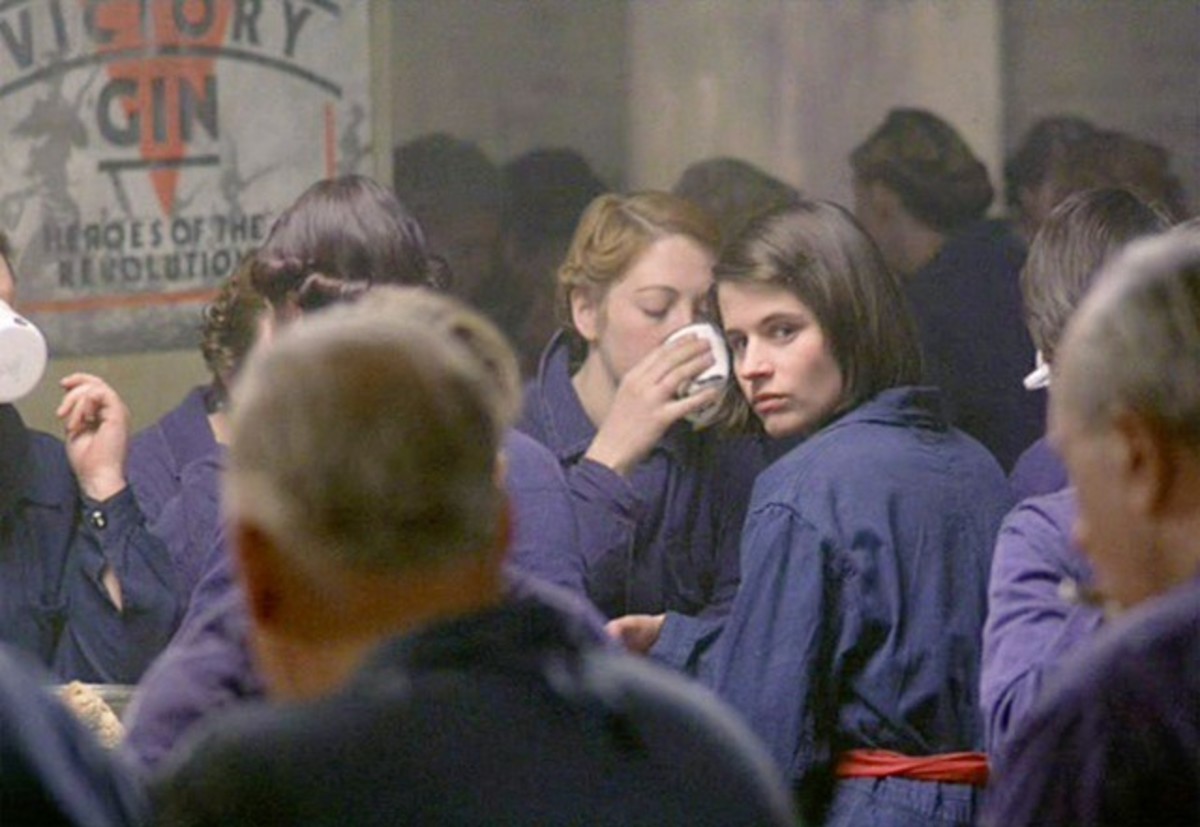
The final sequences of the film are perhaps even more psychologically scarring than Orwell’s novel – something I do not admit lightly. The scene between Smith and his neighbor Mr. Parsons (Gregor Fisher) in which the half-crazed man pleads with Smith that he’d be more useful in a labor camp than dead, and that his children were right to turn him in, perfectly exemplifies the kind of mental gymnastics I can only imagine one must go through to act consistently against one’s own self interests.
This of course sets up the climactic encounter between Smith and O’Brien (Burton), and the grueling torture that eventually breaks the man for good. Although no violence is depicted, the way in which Burton coldly explains his methods is as chilling as Hannibal Lecter even on the murderer’s darkest day. So much so in fact, that it wouldn’t surprise me to learn that Anthony Hopkins studied this scene in preparation for playing the famed cannibal.
Some movies frighten through gratuitous gore and jump scares, while others chill to the bone through disturbing amounts of plausibility. Guess which category 1984 falls under.
United Kingdom • 1984 • 110 minutes • Color • 1.85:1 • English • Spine #984
Criterion Special Features Include
- New 4K digital restoration, supervised by cinematographer Roger Deakins, with uncompressed monaural soundtrack on the Blu-ray
- Two scores: one by Eurythmics and one by composer Dominic Muldowney
- New interviews with director Michael Radford and Deakins
- New interview with David Ryan, author of George Orwell on Screen
- Behind-the-scenes footage
- Trailer
- English subtitles for the deaf and hard of hearing
- PLUS: An essay by writer and performer A. L. Kennedy
James is a writer, record collector, wrestling nerd, and tabletop gamer living with his family in Asheville, North Carolina. He is a member of the Southeastern Film Critics Association, the North Carolina Film Critics Association, and contributes to The Daily Orca, Razorcake Magazine, Mountain Xpress, and Asheville Movies.